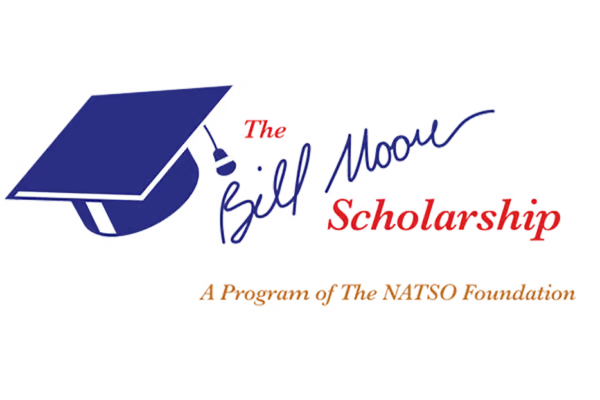Reward & Recognize Travel Center Employees for a Job Well Done
Everyone wants to feel valued, and when it comes to human resources, feeling appreciated is essential. Employees perform better at work and are less likely to move on when they feel valued. Effective employee recognition programs don’t have to be expensive, but they have to be meaningful.
“The most important thing with appreciation is understanding what makes a difference to employees,” said Darren Schulte, vice president of membership for NATSO. “I do really believe it starts with the managers understanding what is important to their people.”
Understand Employee Needs
Schulte said some truckstop and travel plaza employees live paycheck to paycheck, and operators should keep that in mind when thinking of appreciation. “What does someone really want? When we give someone an extra day off work, that may not be as important as giving them half of their salary for that day,” he said.
Cindy Knight, human resources director at Rochelle Petro, said what the location’s employees want has changed. “Years ago, things like clocks and whatnot were valued as awards, but as time has gone on, people really only want cash/gift cards, food and t-shirts, all of which can be done pretty inexpensively,” she said.
Don Quinn, vice president of NATSO Solutions, said operators need to find something that will work across the spectrum of employees. “A gas card or a gift card seems to work well,” he said.
Mitten’s recognizes staff members when they receive specific complements for a job well done, such as a fleet owner calling or emailing, an online comment on a specific shop tech that went above and beyond to get a truck back on the road, or a customer calling the c-store manager to tell them how one of the cashiers did a good deed or made someone’s day. “In these instances, we usually present the staff member with a gift card or gas card,” said Darren Goetz, executive vice president of Mitten Inc.
Schulte said operators should look at what their employees need. “Let’s pretend you’re going to spend $250 having a dinner. Maybe it is better to give each of them a $25 gift card,” he said, adding that employee discounts, particularly on what employees need, such as fuel, can be a welcome gift. “You can also get specific. If you have working parents with children at home, what about selling them milk at your cost?”
For many years, Mitten’s has chosen an employee from its four departments—c-store, shop, restaurant and transport department—as employee of the year. Their department managers choose the employees, and each receives a quarter of a beef as a bonus. “We typically purchase the beef at a 4H auction or a county fair to support those kids, families and custom- ers who work hard to prepare their animals for these events,” Goetz said.
Goetz said Mitten’s tries to be innovative yet consistent in the ways the location celebrates and recognizes staff. “It doesn’t have to be expensive,” he said. “Recognition properly delivered can be both beneficial and cheap, potentially free.”
Knight said Rochelle Petro follows the Petro service award pin program, giving a pin at two, five, 10, 15, 20 years and so on. “We also give gift cards with the pins,” Knight said.
For many employees, the recognition may be more important than the monetary value of an award. Quinn said a personal outreach or gift is more important than the size of the gift. “I like the idea of sending them a letter and saying that we just want to take this time to recognize how valuable you are to our business and thank you for that opportunity to serve you,” Quinn said. “A meaningful handwritten card to each employee is probably the most mean- ingful, but it takes time.”
Schulte said birthday cards and thank you cards are always welcome. “Some people don’t like to be appreciated verbally, but no one turns down a card,” he said.
Get Creative with Rewards
There are several non-monetary rewards that show appreciation, and Schulte said companies can get creative.
Phone time could be an inexpensive way to show employees appreciation, Schulte said. “Phones are really important to everyone, but it is hard to have staff on them. Maybe the manager can jump on a register and allow the staff to check their phone to check on their children and families,” he said. “Certainly, the managers are checking their phone and checking their children. If you’re really going to appreciate your em- ployees, you can’t have hypocrisy.”
Being able to check their phones could be especially important to employees during a time like COVID-19 when people are more worried about their loved ones, Schulte said.
Scheduling is another way to show employee appreciation. If possible, Schulte said operators could tailor schedules to meet employees’ needs. “What about letting them start the day after they drop the kids off at school? Instead of starting at 7:00 in the morning, what about having them start at 8:30? I think when it comes to employee appreciation, you can get creative,” he said.
Schulte said some employees may be unbanked and have to pay to cash their paychecks. “Maybe you can help them understand how to go to a bank and get an account, or you could put their paychecks on an ATM card. That shows appreciation, so they’re not wasting $20 to $30 just to cash their check,” he said.
Think Through Emploee Parties
Companies often use parties to celebrate their staff. When planning a party, Schulte said it is important to think about employees who may work two jobs or those who have children they need to watch. “Try to be inclusive. Maybe you offer two parties, one on a Saturday and one on Sunday, and make sure everyone on staff knows they can attend one or the other and can bring their family,” he said.
Rochelle Petro has always had an employee party of some kind. “It used to be Christmas parties with food, prizes and dancing. Then because of our horrible luck with weather and people being busy, we switched to a bowling party in April and invited families. That has been a big hit,” Knight said, adding that the company had to postpone this year’s party due to COVID-19.
Rochelle said managers also do things within their departments to show appreciation, such as hosting a pizza party.
Understand the Effect of COVID-19
COVID-19 has caused additional stress for employees, which means employee recognition could be especially meaningful during this time. A poll by the Kaiser Family Foundation found that 45 percent of adults said that their mental health has been negatively impacted during the pandemic.
During COVID-19, Rochelle Petro supplemented the wages of employees in the full-service restaurant whose pay was affected while the dining room was closed, and the company gave all hourly employees hazard bonuses twice.
Schulte said that in talking to members, it seemed that the members who already did a good job of taking care of their staff had the least amount of turnover during COVID. “I think what COVID has done is that the people who are really really happy with their jobs have stayed,” he said.
Encourage Peer-to-Peer Recognition
One way to ensure broad employee recognition is to let everyone in the company show appreciation. Schulte said operators could encourage their employees to show appreciation for each other. The Society for Human Resource Managers found that peer recognition is nearly 36 percent more likely to impact financial results positively than manager-only recognition.
Peer-to-peer recognition could include giving each other cards for a job well done. Those cards could then be placed in a monthly drawing. Locations could also feature some type of wall where employees can post positive comment cards about each other, Schulte said.
Create an Effective Program
No matter how locations decide to reward employees, Schulte said there are four key elements of any recognition program. The recognition needs to be timely, frequent, specific and visible.
Goetz said his goal is to be consistent and fair. “Inconsistent recognition leads to failed programs where the intent wasn’t properly received based on the perception on the recipient or their peers,” he said. “I think too much recognition downplays the importance of any program. Conversely, no recognition program is likely unfavorable.”
Subscribe to Updates
The NATSO Foundation and NATSO provide a breadth of information created to strengthen travel plazas’ ability to meet the needs of the traveling public in an age of disruption. This includes knowledge filled blog posts, articles and publications. If you would like to receive a digest of blog post and articles directly in your inbox, please provide your name, email and the frequency of the updates you want to receive the email digest.











